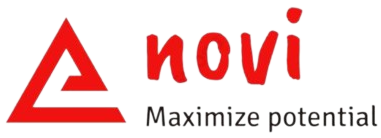In the intricate web of business operations, the concept of loss control emerges as a guardian of stability. Effective loss control is more than just a precautionary measure; it’s a well-orchestrated symphony of strategies designed to shield your business from risks, enhance operational efficiency, and pave the way for sustainable growth.
Risk Identification and Assessment
The journey towards effective loss control begins with a thorough understanding of the risks your business faces. This involves identifying potential hazards and vulnerabilities unique to your industry, location, and operations. A comprehensive risk assessment evaluates the likelihood and potential impact of these risks, forming the bedrock of your loss control strategy.
Employee Training and Education
Your workforce is the first line of defense against potential risks. Empowering employees with the knowledge to identify hazards, adhere to safety protocols, and respond effectively to emergencies is crucial. Regular training sessions create a culture of safety, where every team member plays an active role in loss control.
Emergency Preparedness and Response
Even with the best preventive measures, emergencies can occur. Effective loss control includes developing comprehensive emergency response plans that outline actions to be taken during crises. This ensures that your team knows how to react swiftly and decisively, minimizing the impact of incidents and ensuring a safer environment for all.
Continuous Improvement and Adaptation
The landscape of risks is ever-evolving. What worked yesterday might not be sufficient today. An effective loss control strategy embraces the concept of continuous improvement. Regularly reviewing and updating your strategies based on emerging risks, industry changes, and lessons learned from incidents ensures that your defense remains robust and relevant.
Data Analysis and Insights
Harnessing the power of data is a hallmark of effective loss control. Analyzing incident data, near-misses, and trends provides invaluable insights into recurring risks. This data-driven approach helps you refine your strategies, allocate resources more efficiently, and make informed decisions that drive lasting results.
Collaborative Partnerships
In a world interconnected by industries and technologies, collaboration is key. Effective loss control involves forming partnerships with experts, industry peers, and suppliers who can contribute to your risk management efforts. Sharing knowledge, best practices, and experiences strengthens your defense against potential losses.
Conclusion: A Symphony of Preparedness
The key components of effective loss control form a symphony of preparedness that harmonizes with your business’s objectives. By identifying risks, taking proactive steps to prevent them, empowering your team, and adapting strategies, you build a fortress of protection. Loss control isn’t just about safeguarding assets; it’s about empowering your business to navigate challenges with resilience, ensure operational continuity, and chart a course towards sustained success. Welcome to the realm where risks are tamed and futures are secured – the realm of effective loss control.


